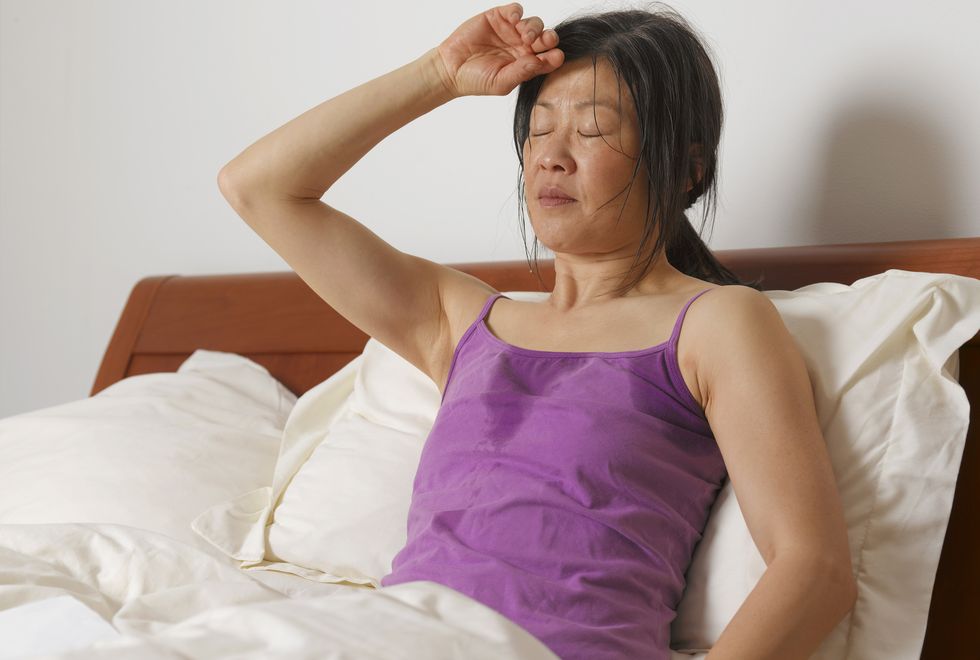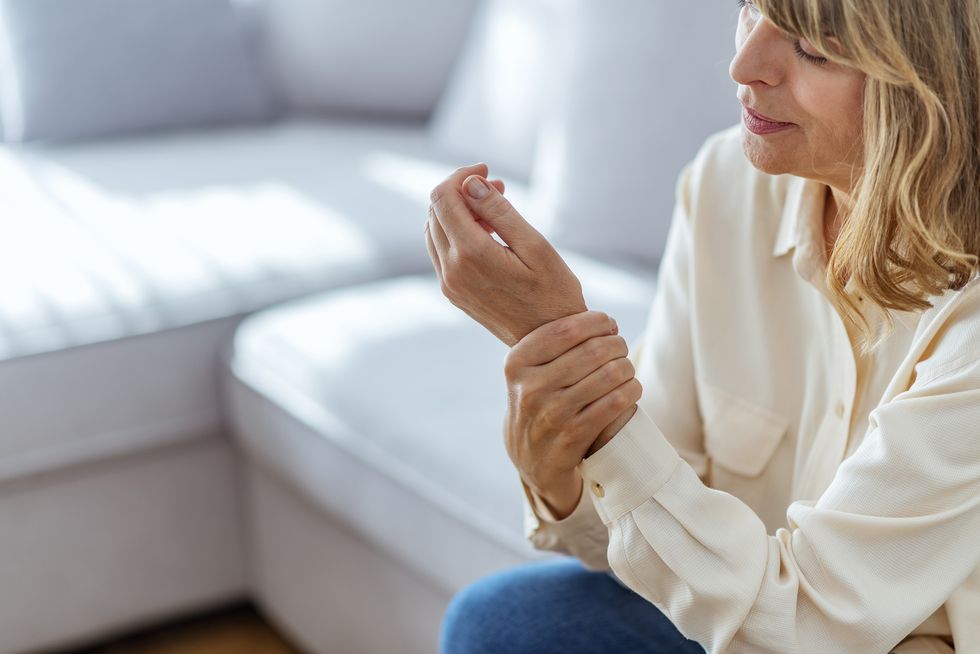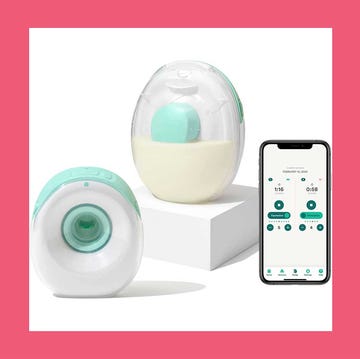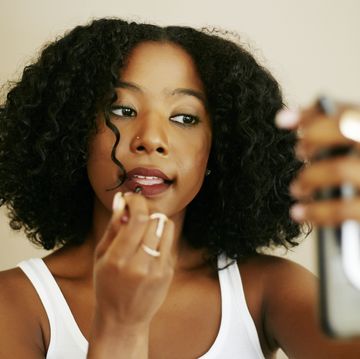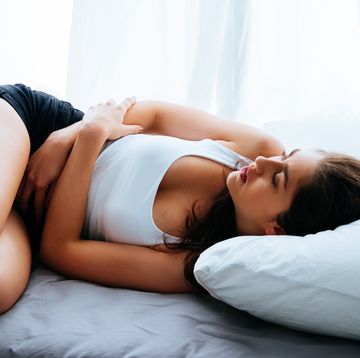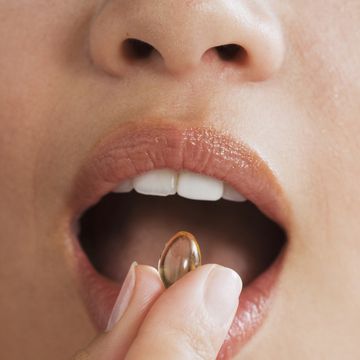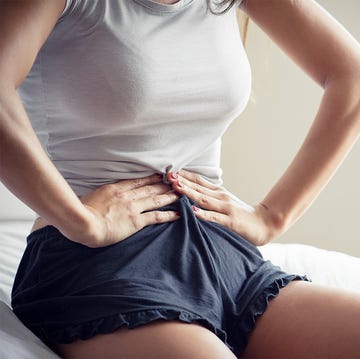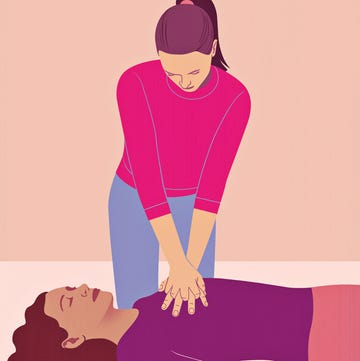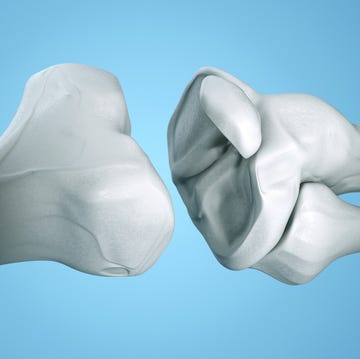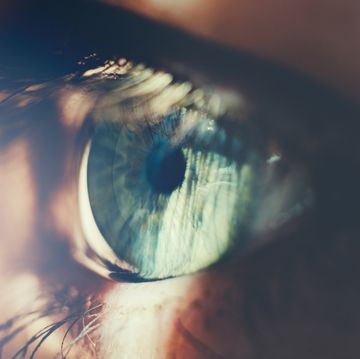Although menopause can be a welcome change for plenty of people who have periods, it can also be fairly nerve-wracking — especially if you don’t know what to expect. And while there are menopause symptoms everyone should know about, whether they menstruate or are partnered with someone who does, reproductive health education is, sadly, lacking in this country. Thankfully, there are plenty of resources available online to better learn about menstruation, menopause, and what to look out for if you or someone you know is nearing the age when menopause typically occurs.
If it has been one full year since you’ve had your period — and you aren’t on a birth control method that stops you from bleeding during your periods, like an IUD, or have an underlying medical condition — chances are you’re in menopause. The average age of menopause for people who menstruate is 51 years old, according to Harvard Medical School. That said, certain medical interventions, like chemotherapy and surgery to remove the ovaries, can cause someone to experience symptoms of menopause earlier.
When the body goes through menopause, hormone levels change, much like when a person becomes pregnant. “Once your period has stopped, your estrogen levels will gradually decline, and your body will stop making progesterone,” Dr. Jodie Horton, board-certified OB/GYN who is an advisor for Love Wellness, tells Woman’s Day. “The changes in hormones can cause physical and emotional symptoms.”
Like any other reproductive health outcome, menopause is a completely subjective experience, so menopause symptoms can and often do vary from person to person. But also like many other reproductive health outcomes, including pregnancy, how your mother experienced menopause may point to what you can expect as well. One 2017 study published in The Journal of The North American Menopause Society found that genetics play a role in whether you’ll experience certain symptoms, specifically hot flashes and night sweats.
But regardless of which symptoms you’ll experience, you’re almost guaranteed to experience some kind of physical change. “Fifty to eighty percent of women who go through natural menopause experience symptoms,” Dr. Horton says. With that said, here are the seven most common menopause symptoms everyone should know about:.
Hot Flashes
“Hot flashes are described as a sudden sensation of extreme heat in the upper body, referred to as a hot flush,” Dr. Horton says. It can last anywhere from just a minute to a full five minutes, and manifests as flushing, clamminess, anxiety, heart palpitations, and even chills. According to Dr. Horton, the cause of hot flashes is not entirely understood. “It is thought to be due to the decrease in estrogen, but there is also evidence that a woman’s ability to regulate her body’s temperature changes as she ages,” she says.
Estrogen therapy and estrogen with progesterone therapy can alleviate these symptoms, but Dr. Horton is quick to point out that these treatments come with risks. “Some women are advised not to take hormones because of risk of breast cancer, heart attacks, strokes, and blood clots,” she says. “It is essential to discuss the risk and benefits with your doctor to make the best decision for you.” Dr. Horton says that you should avoid caffeine and alcohol since they can increase the severity and frequency of hot flashes.
Night Sweats
In short, a night sweat is a hot flash that comes on at night and disrupts your sleep. The physical sensations of night sweats are the same as hot flashes, and can include flushing and heart palpitations. As a result, they can be treated the same way hot flashes are treated. “However, here are other things women can do to help alleviate symptoms,” Dr. Horton says. Specifically, Horton suggests keeping your bedroom temperature cool — between 60 and 70 degrees.
If you’re a hot sleeper to begin with, it might also be worth it to invest in some sleep technology that can help you get a more restful snooze. There are sheets and mattresses that allow for more airflow, thus keeping you cooler. Sweat-wicking fabrics for your pajamas, as well as blackout curtains, can also help you stay nice and cool.
Mood Swings and Irritability
Not all symptoms of menopause are physical, of course. “The drop in estrogen is thought to affect the way the body manages serotonin and norepinephrine,” Dr. Horton says. These two chemicals are linked to depression. “Lower levels of estrogen have also been linked to irritability, fatigue, stress, forgetfulness, anxiety, and difficulty concentrating,” she explains.
Hormone therapy can help, but Dr. Horton says that you shouldn’t rule out a round of cognitive therapy if you feel you need it. “Seeing a therapist is always a great option to help you cope with changes of menopause,” she says. “There are antidepressants that treat hot flashes in addition to depression.” Lifestyle changes, like a high-protein diet and adding aerobic exercise to your daily routine, can also lessen these symptoms.
Difficulty Sleeping
It’s not just the night sweats that may keep you up. The decrease in your body’s progesterone production can lead to restless nights, too. “Progesterone is a sleep-friendly hormone,” Dr. Horton says. “Low progesterone can bring about anxiety, restlessness, and trouble sleeping, including a tendency to wake frequently during the night.” Estrogen is another hormone that helps promote healthy sleep, so the lack of it can lead to restlessness. Dr. Horton suggests limiting caffeine and alcohol intake to improve your sleep hygiene, and to exercise at least 30 minutes a day.
Vaginal Dryness
During menopause, “the vaginal tissue becomes thin, and there is a decrease in vaginal secretions,” Dr. Horton says. “Vaginal dryness can lead to painful intercourse and sexual dysfunction.” Regular sexual activity and stimulation (either by your partner or yourself) can help maintain healthy vaginal tissue.
If you need to supplement, though, Dr. Horton suggests water-based lubricants. “If vaginal dryness is the only menopausal symptom a woman is having, [it] can be treated with estrogen applied directly inside the vagina, either as a cream, ring, or tablet,” she explains.
Vaginal Itching and Irritation
Anyone who has a vagina has lactobacillus species, which are bacteria that are a normal part of vaginal flora. These bacterias play an important role in preventing infections, such as bacterial vaginosis, UTIs, and sexually transmitted infections. “Post-menopausal women will experience a decrease in estrogen that will negatively impact the vaginal flora,” Dr. Horton says. This can lead to itching and irritation. Like with vaginal dryness, local estrogen applications can alleviate these symptoms while also decreasing your risk of vaginal and/or bladder infections.
Bone Loss
A dip in estrogen levels can lead to rapid and severe bone loss, as estrogen also helps protect bones. One 1992 study found that women lose about 50% of their trabecular bone and 30% of their cortical bone during the course of their lifetime. Half of that loss occurs during the first 10 years that follow menopause.
“Estrogen therapy or estrogen with progesterone hormone therapy can help prevent bone loss,” Dr. Horton says. But if your doctor advises you against hormone therapy, there are a few lifestyle changes you might make instead. “It is recommended that [people] engage in weight-bearing exercise, quit smoking, and take vitamin D and calcium to promote good bone health,” Dr. Horton says.

